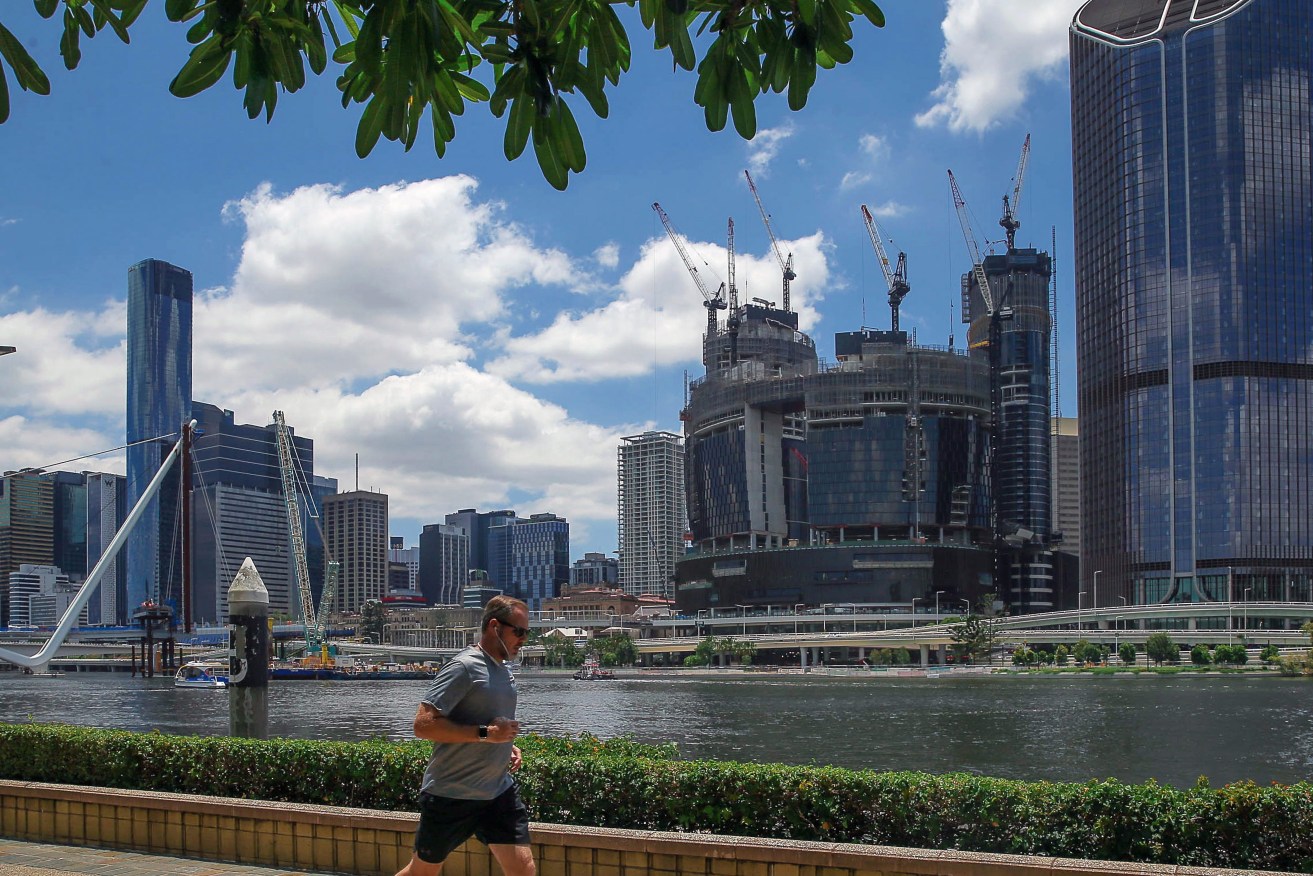Perfect one day, not so much the next: Wellbeing gaps between city and bush
Queensland made important economic gains during Covid but a new report has found significant disparities in wealth and wellbeing between the city and the regions.


A general view of the Brisbane CBD, (AAP Image/Glenn Campbell)
The SSG Economics report found there were major wellbeing gaps across Australia with the ACT having the highest followed by inner city areas in Sydney and Melbourne and the Northern Territory the lowest.
Queensland did not feature in the top 10 but five areas in the state recorded among the lowest wellbeing in Australia. They were Gympie, Caboolture, Charters Towers, Browns Plains and Beaudesert.
The state’s best areas for wellbeing were in Brisbane’s western suburbs headed by Kenmore and followed by Brookfield, Moggill, The Gap and Enoggerra.
SGS said while the areas with low wellbeing did not have high gross regional product scores they did well on other indicators.
Key facts in their selection was affordable housing, good health and protected green space.
The company used data including gross regional product, income, equality, health, housing, employment (skills and knowledge), and environment to complete the report.
“The index found that Brisbane and regional Queensland’s gross regional product growth in 2020-21 outperformed the traditional economic powerhouses of Sydney and Melbourne,” the report said.
“This is largely attributed to the state’s fewer disruptions from Covid-19 with no prolonged lockdowns.
“Perth, Adelaide and Brisbane contributed 30 per cent of Australia’s national growth in 2021-22, up from 12 per cent.”
It comes as the Albanese Government indicated progress on mental health, climate change and inequality could be formally measured under a new national wellbeing index.
Treasurer Jim Chalmers kickstarted the conversation about measuring wellbeing in his first budget last October and officials have since been figuring out what exactly should be tracked.
More than 160 organisations – from charities and environmental groups to government agencies, councils, universities, consultancy firms and housing affordability advocates – have chipped in their thoughts on what should be measured.
In its consultations so far, five key themes have emerged: prosperity, inclusion, sustainability, cohesion and health.
Within those categories, children, inequality and poverty, health, mental health, Indigenous people and environment and climate change were the top policy areas, with housing affordability, intergenerational wellbeing, community wellbeing, arts and culture, digital inclusion and volunteering also highly ranked.
Chalmers said the wellbeing markers would sit alongside, not replace, traditional economic indicators such as gross domestic product.
“It’s clear there’s a real appetite to look at new ways that we can measure progress in our economy and measure the wellbeing of our communities and our society,” he said.
The SGS report also found that incomes were significantly higher in Greater Brisbane than the regions and the city had lower rates of homelessness and overcrowding while rental affordability was similar to other areas in the state.
This was a departure from normal with Sydney and Melbourne having higher rates of homelessness and overcrowding and lower rental affordability.
“The rest of Queensland averaged a higher environmental score than Greater Brisbane.”
SGS principal Julian Szafraniec said where people lived strongly influenced their level of wellbeing and how they experienced society, the economy and the environment.
“Clear wellbeing gaps continue to characterise Australians’ experiences in our cities and regions and more must be done to improve the wellbeing of rural and regional Australians,” he said.












